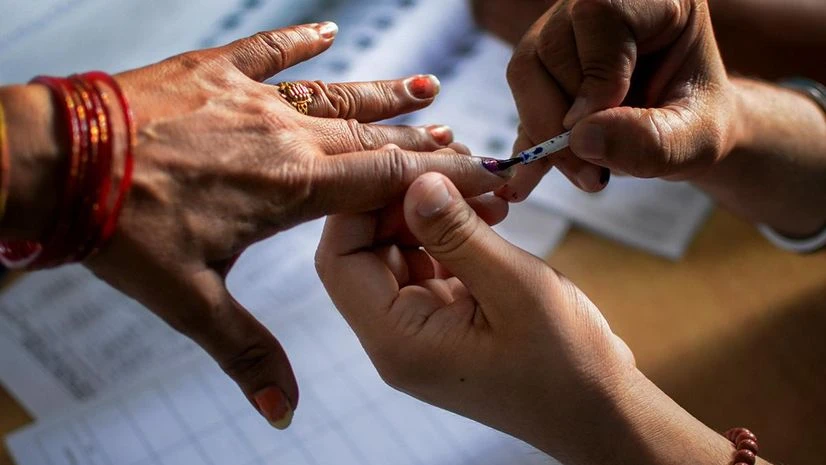Jammu and Kashmir elections: A total of 49 out of 238 candidates (21 per cent) contesting in Phase II of the Jammu & Kashmir Assembly elections have declared criminal cases against themselves. Of these, 37 candidates (16 per cent) have serious criminal cases, including three charged with attempted murder under Indian Penal Code (IPC) Section 307. Additionally, seven candidates are implicated in crimes against women, with one candidate facing charges of rape under IPC Section 376, according to a report by the Association for Democratic Reforms (ADR).
Major political parties and criminal backgrounds
The report further shows that major political parties have fielded candidates with criminal backgrounds. The breakdown is as follows:
- Bharatiya Janata Party (BJP): Four out of 17 candidates (24 per cent) have criminal cases, with three (18 per cent) facing serious charges.
- Indian National Congress (INC): Two out of six candidates (33 per cent) have criminal cases, with both facing serious charges.
- Jammu & Kashmir People’s Democratic Party (JKPDP): Four out of 26 candidates (15 per cent) have criminal cases, with one (4 per cent) facing serious charges.
- Jammu & Kashmir National Conference (JKNC): One out of 20 candidates (5 per cent) has a criminal case, including one (5 per cent) facing serious charges.
Red alert constituencies
Eight constituencies (31 per cent) in this phase are designated as ‘red alert’ constituencies, where three or more candidates have declared criminal cases against themselves.
Wealth concentration among candidates in J&K
The wealth distribution among the candidates is also skewed, with 131 (55 per cent) being crorepatis. The average wealth of candidates in this election stands at Rs 5.80 crore.
Here's how much candidates from major parties in Jammu and Kashmir own in assets:
- INC: 100 per cent of its candidates are crorepatis, with an average asset of Rs 29.39 crore.
- JKNC: 90 per cent crorepatis, averaging Rs 11.21 crore in assets.
- BJP: 76 per cent crorepatis, averaging Rs 11.07 crore in assets.
- JKPDP: 73 per cent crorepatis, with an average asset value of Rs 5.24 crore.
The top candidate with the highest declared assets is Syed Mohammad Altaf Bukhari from Jammu and Kashmir Apni Party, with total assets of over Rs 165 crore.
Candidates with high liabilities
A total of 133 candidates (56 per cent) have declared liabilities. The candidate with the highest liabilities is Masood Ahmed, an independent candidate from Poonch Haveli, with liabilities exceeding Rs 10 crore.
More From This Section
Educational and age profile
The educational qualifications of candidates vary, with 49 per cent having studied between 5th and 12th standard and 48 per cent holding a graduate degree or higher. Age-wise, 44 per cent of the candidates are between 41 and 60 years old.
Gender representation
Only 3 per cent of the candidates in this election phase are women, highlighting a significant gender gap in political representation.
Recommendations for reform
To address the criminalisation in politics, several recommendations have been proposed by ADR:
1. Permanent disqualification of candidates convicted of heinous crimes.
2. Disqualification of those with charges framed for serious offences punishable by at least five years in prison.
3. Bringing political parties under the Right to Information Act.
4. Imposing financial penalties on parties for insufficient disclosures.
5. Implementation of the Supreme Court’s order on publishing criminal records of candidates.
Jammu and Kashmir elections
The elections for the 90-member Jammu and Kashmir Assembly will take place in three phases on September 18, 25, and October 1, with the results scheduled to be announced on October 8.
Jammu and Kashmir has been under central administration since June 2018, following the BJP’s withdrawal from its alliance with the PDP, leading to the resignation of then Chief Minister Mehbooba Mufti. Subsequently, Governor Satya Pal Malik dissolved the Jammu and Kashmir Legislative Assembly on November 28, 2018, after Mufti’s attempt to form a coalition government with the Congress and the National Conference was unsuccessful.
The region then came under President’s Rule on December 19, 2018, as announced by then President Ram Nath Kovind under Article 356 of the Constitution. The political landscape of Jammu and Kashmir underwent a significant change on August 5, 2019, when the BJP-led central government abrogated Article 370, stripping the region of its special status and bifurcating the state into two union territories.

)